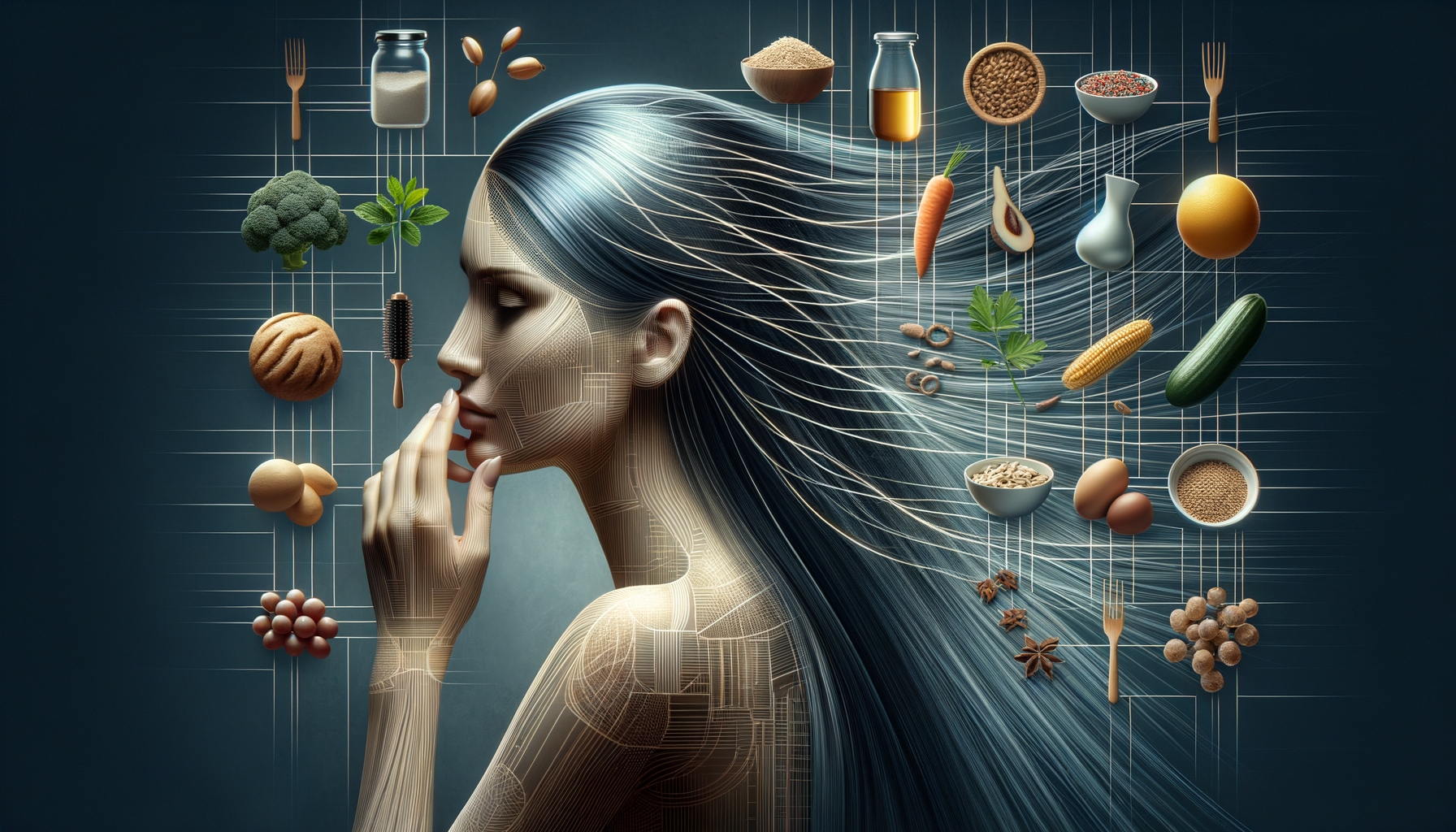Hair Thinning in Women Over 40: Foods That Can Help And What To Avoid
Understanding hair loss and its impact can help individuals make informed decisions about prevention and treatment.

Understanding Hair Loss: A Common Concern
Hair loss is a prevalent issue affecting millions worldwide, transcending age and gender. While it is often perceived as a cosmetic concern, the implications of hair loss can be profound, impacting self-esteem and quality of life. For many, hair is not just a biological feature but a symbol of identity and personal expression. Understanding the causes and potential solutions is crucial for those experiencing this common condition.
Hair loss, or alopecia, can manifest in various forms, from thinning and patchy bald spots to complete baldness. The most common type is androgenetic alopecia, often referred to as male or female pattern baldness. This type is largely genetic and can be influenced by hormonal changes, particularly in women experiencing menopause. Other factors contributing to hair loss include stress, nutritional deficiencies, medical treatments, and certain hairstyles that place excessive tension on hair follicles.
Recognizing the signs early can be beneficial. These may include a noticeable thinning on the top of the head, patchy bald spots, sudden loosening of hair, or full-body hair loss. If you notice these symptoms, consulting a healthcare provider can help determine the underlying cause and appropriate treatment options. Early intervention can sometimes slow or reverse hair loss, making it essential to address the issue promptly.
Causes of Hair Loss: More Than Just Genetics
While genetics play a significant role in hair loss, several other factors can contribute to this condition. Hormonal changes are a primary cause, especially in women. Conditions such as pregnancy, childbirth, menopause, and thyroid problems can lead to temporary or permanent hair loss. Understanding these hormonal influences is essential for effective management and treatment.
Nutritional deficiencies are another critical factor. A lack of essential nutrients like iron, zinc, and vitamins such as D and B12 can weaken hair follicles, leading to hair loss. A balanced diet rich in these nutrients can support hair health and prevent further loss. Additionally, stress is a well-known trigger for hair loss, often resulting in a condition known as telogen effluvium, where stress pushes hair follicles into a resting phase, causing hair to fall out more easily.
Certain medical conditions and treatments can also lead to hair loss. Autoimmune diseases like alopecia areata cause the immune system to attack hair follicles, resulting in hair loss. Treatments like chemotherapy and radiation are known to cause hair loss as a side effect. Understanding the diverse causes of hair loss is crucial for developing a comprehensive treatment plan tailored to individual needs.
Prevention and Treatment: Strategies for Managing Hair Loss
Preventing and managing hair loss involves a multifaceted approach. For those experiencing genetic hair loss, medications such as minoxidil or finasteride can be effective in slowing down hair loss and, in some cases, promoting regrowth. These medications require consistent use and should be discussed with a healthcare professional to understand potential side effects and benefits.
For individuals experiencing hair loss due to nutritional deficiencies, dietary changes can make a significant difference. Incorporating foods rich in essential nutrients like iron, zinc, and vitamins A, C, and E can support hair health. Foods such as leafy greens, nuts, seeds, and fish are excellent choices for those looking to improve their hair’s condition through diet.
In addition to medical treatments and dietary changes, lifestyle modifications can also play a role in managing hair loss. Reducing stress through practices like yoga, meditation, or regular exercise can help mitigate stress-related hair loss. Avoiding hairstyles that put excessive tension on hair and using gentle hair care products can also prevent further damage to hair follicles.
Natural Remedies: Exploring Alternative Options
For those seeking natural remedies, several options may help manage hair loss. Essential oils, such as rosemary and peppermint oil, have been shown to promote hair growth when used regularly. These oils can be mixed with a carrier oil like coconut or jojoba oil and massaged into the scalp to stimulate hair follicles.
Herbal supplements are another alternative that some individuals find beneficial. Supplements containing saw palmetto, biotin, and ginseng are popular choices for supporting hair health. However, it’s important to consult with a healthcare provider before starting any new supplement regimen to ensure safety and efficacy.
Additionally, practices like scalp massage can improve circulation to the scalp, potentially promoting hair growth. Regular scalp massage can be done using fingertips in a circular motion, helping to relax the scalp and stimulate blood flow to hair follicles.
Psychological Impact: Understanding the Emotional Effects
Hair loss can have a significant psychological impact, affecting confidence and self-esteem. For many, hair is closely tied to personal identity, and losing it can lead to feelings of vulnerability and insecurity. Understanding and addressing these emotional effects is an important aspect of managing hair loss.
Support groups and counseling can provide valuable assistance for those struggling with the emotional impact of hair loss. Sharing experiences with others facing similar challenges can offer comfort and reduce feelings of isolation. Professional counseling can also help individuals develop coping strategies and improve their self-image.
Embracing hair loss as a natural part of life and finding ways to express personal style through other means, such as clothing or accessories, can also help boost confidence. Ultimately, addressing both the physical and emotional aspects of hair loss can lead to a more positive outlook and improved quality of life.